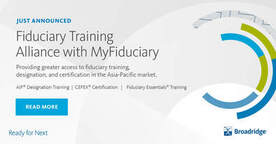Perspectives |
|
|
The investment industry does not stand still. We strive to keep abreast of the latest developments and best investment practices.
|
|
Perspectives |
|
|
The investment industry does not stand still. We strive to keep abreast of the latest developments and best investment practices.
|
|

